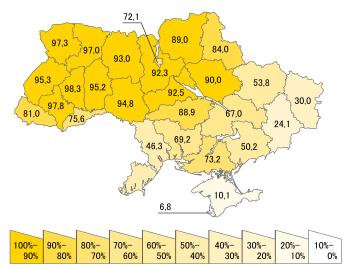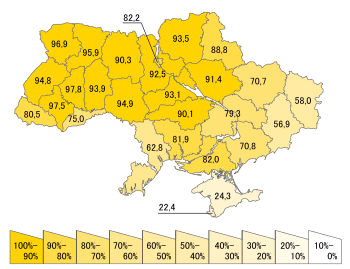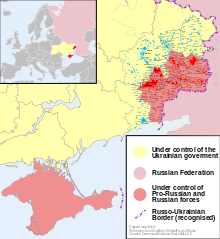Was Russia really able to solve its 'Ukraine' problem by invasion?
wasn't invasion of Ukraine a miscalculation and waste of time by Russia?
Yes, there was a good evidence that Russia was able to stop Ukraine by invading it, just like Russia has successfully prevented Georgia's Eurointegration by armed invasion to Georgia in 2008, with no consequences for the Russia itself.
No, not waste of time. Stopping Ukraine's Eurointegration was Russia's last chance to avoid its own collapse, both as an empire and as the unite state. They understood it very well, and they did everything to keep their own country from collapsing.
Yes, they miscalculated about the world's response on their actions this time.
Before expanding on the above, let me first say that some key points from the referenced video are not very accurate. Not that I'm saying it is deliberately false, but it is misleading as it forms a wrong cause-and-effect picture in the minds of its audience.
For example, Al Jazeera's video puts presidential elections (7-June-2014) before the Russia's armed invasion to Crimea (began on 20-Feb-2014, even according to Russia's official propaganda). This may make someone think that removal Yanukovich may be the cause to Russia's armed invasion to Crimea, but it was the opposite.
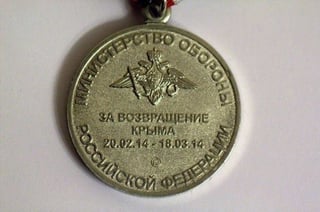
Russia's medal for invading Crimea that clearly says that the Russia's armed invasion to Crimea started on 20.02.2014 when the puppet president Yanukovich still remained in power (Yanukovich fled Ukraine two days later, on 22-Feb-2014).
Another wrong statement is that Ukraine is "split" between Russian and Ukrainian nationals. This has been debunked many times, incl. this site, so let me not reiterate this.
There are several other inaccuracies, too. Again, I don't say that Al Jazeera is lying, but one should always keep in mind such nuances before forming their understanding about what's going on.
So, let's get back to "miscalculation and waste of time by Russia".
Zbigniew Brzezinski has famously observed that “without Ukraine, Russia ceases to be an empire, but with Ukraine suborned and then subordinated, Russia automatically becomes an empire.”
Russia counts itself an empire. Putin personally said that the collapse of Russia's previous project, the "USSR", was "the biggest catastrophe of the century". Most obviously, he sets his goal to revert that.
An empire only make sense if it has colonies. Highly preferable if it expands (e.g., it obtains new colonies, not only keeping the old ones). This is expanded by Lenin in his numerous works, and nothing has changed since then¹.
Ukraine was the key colony to Russia. Many people underestimate the role of Ukraine and Ukrainians in the history of Russia. In pre-technology era, Ukraine was the key of Russian supply of agriculture. Since 1930's, the core Russian technology, science, and manufacture was based in Ukraine or developed by Ukrainian nationals² who were enslaved in Russia's concentration camps (so-called "sharashka's").
The Wikipedia article has numerous sources referenced that confirm this claim³.
Invasion to Ukraine. If let Ukraine go, the above factors make Russia collapse quickly and inevitably:
- No more money influx from Ukrainian corrupted economy to Russia's organized crime;
- No more qualified personnel on Russia's oil and gas mines⁴;
- Liberated Ukraine would effectively cancel out the entire Russia's influence in Europe; No more "puppet Neo-Nazi" parties in European countries can lead to close ties with Russia. Keep in mind that it also instantly invalidates billions of money the Russia has been investing into the corrupted European officials since 1920's;
- The liberated Ukraine would become a vivid example for enslaved nations who are now part of Russian "Federation" to fight for their own freedom (Buryats, Chechens, Koryaks, Yakuts, and hundreds more);
Russia understood the above factors very well and it did everything possible to achieve that goal — namely, they invaded Ukraine to force it remain a colony. This can't be called a miscalculation.
The international response. However, they indeed miscalculated the international response. They expected the world will be mute. And they had reasons to think so, consider zero world's response on Russia's armed invasion to Georgia in 2008. No "Tomawahk" flied into the window of Kremlin :-) , not even sanctions were directed against the Russian war criminals.
They expected that the West will prefer keeping "business as usual".
Summary
The Russians have not been taught lessons after they invaded Georgia, leave alone smaller armed conflicts like Nagorny Karabakh, Transnistria, and many others. They has solid reasons to think that this time the world's response would be the same (= no response).
P.S. One more thing
Ukraine's NATO membership is almost inevitable
This became true as a result of the world's support of Ukraine after the Russian invasion. As of February 2014, there was neither popular demand to NATO among the Ukrainians, nor the NATO's intent to expand to a blatantly corrupted colony of Russia.
References
- Lenin, "Imperialism, the Highest Stage of Capitalism"
- Take just a single area, rocketry and space tech. The vast majority of the Russian rocket engine pioneers were Ukrainians: Vladimir Chelomey, Valentin Glushko, Yuri Kondratyuk, and Sergei Korolev, who worked many years in Russian concentration camp.
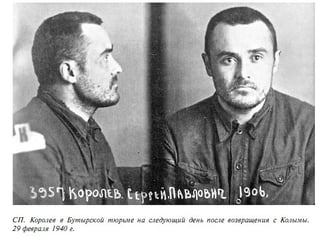
Sergei Korolev in Butyrka jail next day after return from {the Russian concentration camp on} Kolyma {river}, 29 Feb 1940
The only short period when another country was a more important colony is between 1945 and mid-1950's when the Russia-occupied part of Germany was the most essential source of technology (incl. Russia's acquisition of atom power, rocketry, Kalashnikov gun, naval fleet techs, etc.)
No proofs possible, but my friend who obtains a high position in Russian gas industry calls Urengoy no other that "little Ternopil" because of so many Ukrainian engineers are working there.
